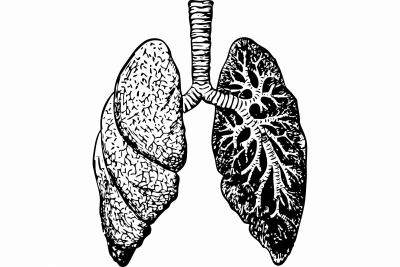Study says ozone therapy promising new treatment for sepsis-induced lung injury
By IANS | Updated: December 29, 2024 10:30 IST2024-12-29T10:26:17+5:302024-12-29T10:30:15+5:30
New Delhi, Dec 29 Sepsis, a severe and often fatal complication of infection, is a leading cause of ...

Study says ozone therapy promising new treatment for sepsis-induced lung injury
New Delhi, Dec 29 Sepsis, a severe and often fatal complication of infection, is a leading cause of both acute lung injury (ALI) and acute respiratory distress syndrome (ARDS). Now, researchers report medical ozone therapy as a promising new treatment for sepsis-induced ALI.
This innovative approach could significantly improve survival rates and lung function in preclinical models, offering hope for patients with limited treatment options, according to the study from Nanjing Medical University in China.
Neutrophil extracellular traps (NETs) play a central role in the progression of sepsis, as they are involved in trapping pathogens but can also trigger excessive inflammation, exacerbating lung injury.
The complexity of sepsis-induced ALI, driven by the interplay among inflammation, immune dysregulation, and coagulation, calls for innovative therapeutic strategies to better manage this critical condition.
The study, published in the Journal of Biomedical Research, detailed how medical ozone therapy effectively clear NETs, significantly improving survival rates and lung function in mice suffering from sepsis-induced ALI.
This work represents a critical step forward in the search for new treatments for this deadly condition. The study provides an in-depth examination of the mechanisms behind ozone therapy's therapeutic effects on sepsis-induced ALI.
"Our research demonstrates that medical ozone therapy could dramatically improve the management of sepsis-induced ALI. This represents a promising new approach to critical care that could lead to better outcomes for patients suffering from sepsis,” said Dr. Wen-Tao Liu, the principal investigator of the study.
The implications of this study are far-reaching. If subsequent research confirms these results in human trials, medical ozone therapy could become a viable and effective treatment for sepsis-induced lung injury, a condition currently with few treatment options.
Ozone therapy's potential to improve survival and lung function could transform the management of sepsis, offering new hope for patients who face a bleak prognosis.
The study authors noted that as this promising therapy advances through further research, it may become a cornerstone in the fight against sepsis, reshaping how we treat this life-threatening condition.
Disclaimer: This post has been auto-published from an agency feed without any modifications to the text and has not been reviewed by an editor
Open in app